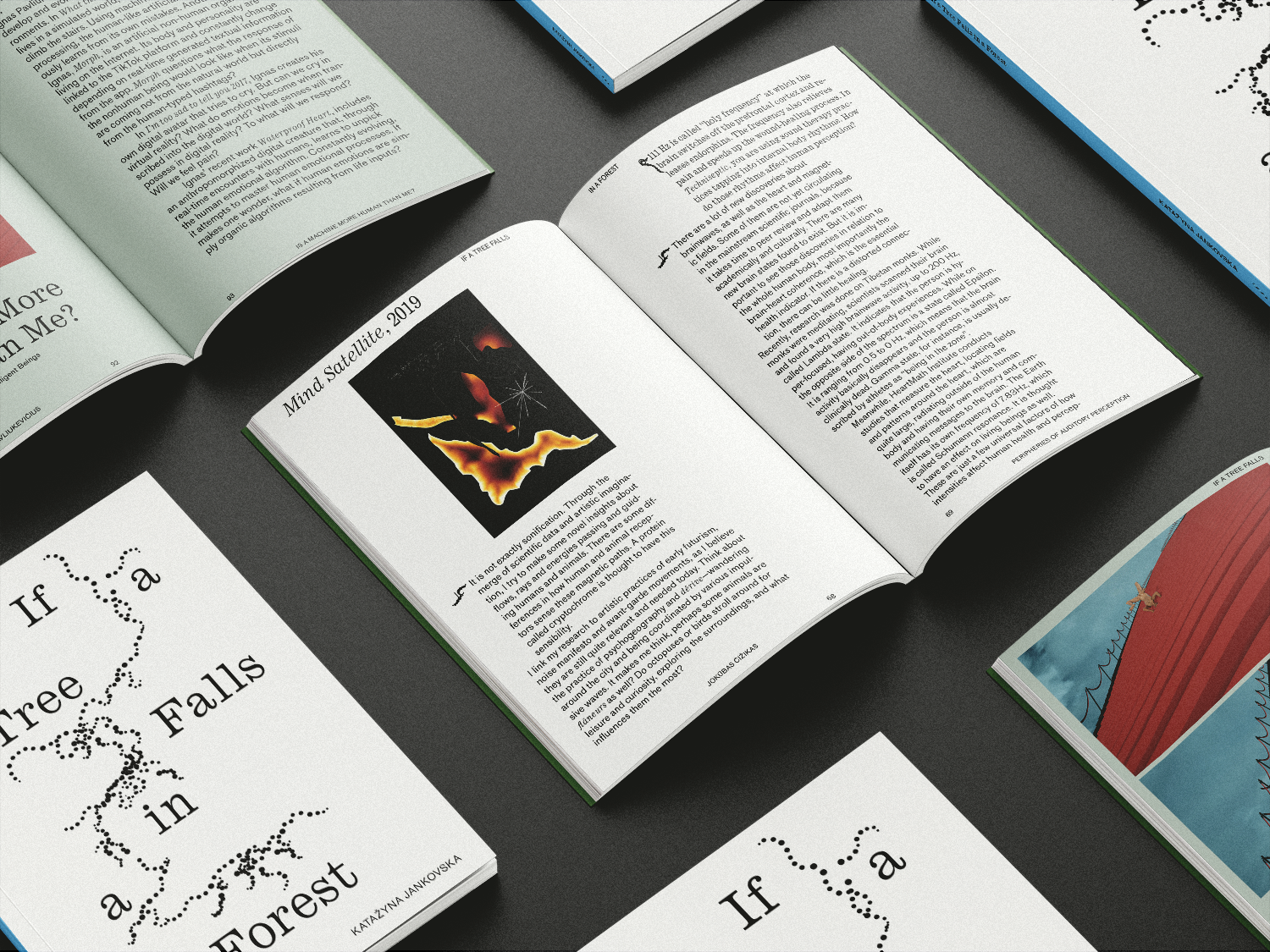If a Tree Falls in a Forest collects interviews on artistic experiments and scientific research to explore the contours of human sensoria. Both an unfinished hypothesis and a reference to an oft-discussed riddle—if a tree falls in a forest and no one is around to hear it, does it make a sound?—it leaves us with a question—what constitutes reality? Think about the high-pitched sounds of insects, chemical flows, wavelengths of light that do not reach our retina, Earth’s magnetic field, and other dynamics of the world that happen beyond human perception. Our senses are limited but not fixed. Using technologies to extend the boundaries of our natural sensory environment, artists are taking back control over tools and knowledge accessible. The collected conversations with the artists suggest new modes of attention, addressing perception and sensual awareness in nonhuman, technological, and human dimensions.
With contributions by Mark IJzerman, who looks at planetary processes such as eroding biodiversity and warming waters from nonhuman perspectives and micro-biological scales; Merle Bergers brings back a sense of smell, translating volatile plant communication into scents that one can wear and use to assess the state of the world; Roland van Dierendonck develops microbe sensing technologies, engaging with microbes inside and outside of us and stressing the influence of the microbiome on our behavior; Mindaugas Gapševičius’ develops interfaces that allow one to sense electrical signals sent from the other, be it a human, a dog, or the environment, speculating on a new mode of interspecies communication; Jokūbas Čižikas explores frequencies and vibrations happening beyond the audible range, composing sounds from the rhythms emitted by the human body, such as heartbeats and brainwaves; Philip Vermeulen questions our reliance on the sense of sight in perceiving reality by stimulating our vision with fast-moving phenomena or causing perceptual deprivation; Ignas Pavliukevičius develops constantly evolving artificial digital beings learning from the environment, while Sandra Golubjevaitė creates DIY interfaces with computing approaches coming from nonlinear principles.
Editor: Katažyna Jankovska
Contributions by: Mark IJzerman, Merle Bergers, Roland van Dierendonck, Mindaugas Gapševičius, Jokūbas Čižikas, Philip Vermeulen, Ignas Pavliukevičius, and Sandra Golubjevaitė
Graphic Design: Studio Janne Beldman
Proofreading: Arabella Turner
Printed at Ridderprint, The Netherlands
Print run: 100 copies
Published by Krea, The Netherlands, 2023
The publication is supported by Gemeente Rotterdam & the Lithuanian Council for Culture
ISBN 978-94-6458-920-7

